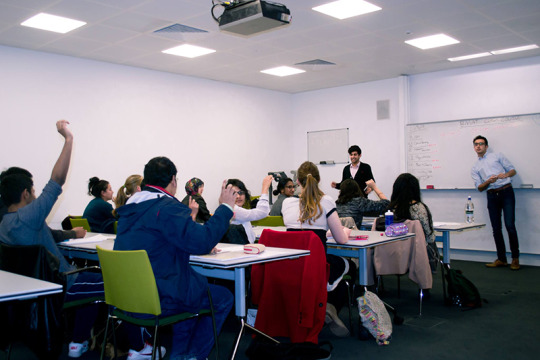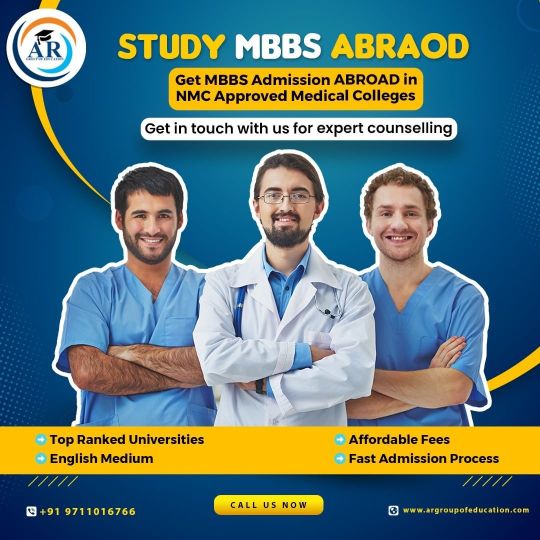#bmat preparation
Link
#bmat#bmat classes#bmat prep#bmat preparation#bmat test#bmat tutor#bmat training#bmat classes in dubai#bmat prep in dubai#bmat preparation in dubai#bmat test in dubai#bmat tutor in dubai#bmat training in dubai
0 notes
Text
i literally don’t want to apply to any university ever i want to sit in my room and watch toy story
#amber rambles#it’s so much more frightening. it’s like i’m being forced to grow up#being an international is like i do not know of the country i’m applying to i won’t get the correct work experience#i do not want a work experience *gags and throws up*#i hate it when things start to get too real#and they are now.#and i have no way out of MY academic system and i know i’ll sit for my entrance anyhow.#like that’s a guarantee so i have to study for that while maintaining a 90 in all my subjects for my 12 finals which would be boards!#i have to prepare for the bmat and ucat within like 4 months from now write my personal statement and also volunteer at places?#what if i just kms
10 notes
·
View notes
Text
happy nanowrimo writers buddies
#nanowrimo 2023#has arrived#god now I seriously have to start writing the thing#I don’t feel ready but I have to be.#I promised myself I would do it seriously#but hey#I have a lot to study and everything’s a mess right now#i’ll try my best#LET’S WRITEEEEEEEEEEE#oh no#just joking#first I have to finish to revision literature (which I practically know by heart) and then I have to study history and chemistry and#should also study for an exam I have on friday#then I want to watch shameless and go on with#my year of rest and relaxation#and prepare for the ucat and the bmat and the ielts and oh god I’m gonna die alone
3 notes
·
View notes
Text

BMAT exam preparation in Dubai:-
#BMAT exam preparation in Dubai#BMAT exam preparation#EMSAT training near me#Best EMSAT training in Dubai#Online IELTS course in Dubai
0 notes
Text
How Studying Abroad in Australia Can Transform Your Life?
Unlocking Life Transformation: The Impact of Studying Abroad in Australia
Embarking on a journey of studying abroad is a transformative experience that has the potential to reshape your life in ways you might not have envisioned. Amid the myriad choices for your academic expedition, Australia stands out as an exceptional destination, offering a harmonious blend of top-notch education, cultural diversity, and ample opportunities for personal growth.
Benefits of Studying Abroad:
Enhanced Academic Focus:
Studying abroad introduces you to a fresh academic environment, reigniting your passion for learning. Varied teaching methods and diverse perspectives challenge conventional thinking, resulting in improved academic performance. Interacting with professors and students from diverse backgrounds broadens your intellectual horizons, fostering a deeper understanding of your chosen field.
Cultural Immersion:
Living among locals provides a unique opportunity to immerse yourself in their customs, traditions, and way of life. This exposure deepens your cultural understanding and enhances your adaptability and cultural adaptability.
Independence and Personal Growth:
Gaining independence is a significant outcome of studying abroad. Being away from your familiar support network encourages self-reliance and personal growth. Navigating daily life in a new country necessitates stepping out of your comfort zone, adapting to new situations, and developing problem-solving skills. The challenges faced independently contribute to building confidence and resilience that prove valuable in various aspects of life.
Employability Boost:
International experience is increasingly valued by employers. Studying abroad showcases your adaptability, cross-cultural communication skills, and global mindset—qualities crucial in today's workplace. Your overseas experience sets you apart from other candidates, making you more attractive to future employers and broadening your career horizons.
Language Acquisition:
Engaging with locals and navigating daily life in a new language presents an opportunity to enhance your language skills. Mastering a new language not only facilitates better communication but also provides a competitive edge in the global job market.
Global Friendships:
Interacting with fellow international students and locals enables you to forge lifelong friendships, creating a global network that exposes you to diverse perspectives and ideas. This experience expands your horizons beyond what you might have previously thought possible.
Opting for Australia as your academic destination through goto university study abroad not only ensures top-notch academic excellence but also guarantees a vibrant array of experiences that significantly contribute to both personal and professional development. The distinctive blend of high-quality education, cultural immersion, and a myriad of opportunities positions the act of studying in Australia as a key catalyst for embarking on a genuinely transformative life journey
#abroad services mumbai#delhi consultancy#delhi overseas advisors#sat exam training#lnat preparation india#overseas advisors kerala#pune consultancy#ielts classes india#bmat test india#sat coaching india
0 notes
Text

BMAT exam preparation-
Amourion Training Institute is a leading provider of training and learning solutions in Dubai. We offer a wide range of courses, including computing, language, finance, medical, and digital marketing. Our courses are taught by experienced professionals and are designed to help you achieve your career goals. We also offer study abroad planning services to help you find the right college or university for your needs. To know more information visit: https://www.amourion.com/course-details/bmat-training-dubai
0 notes
Text
0 notes
Text
Everything You Need to Know About MBBS
Introduction
Pursuing a Bachelor of Medicine, Bachelor of Surgery (MBBS) is a dream for many aspiring doctors worldwide. This esteemed degree is a gateway to the medical profession, offering both challenges and rewards. If you're considering a career in medicine, this guide will provide you with a comprehensive overview of what MBBS entails, the steps to enroll in an MBBS program, and what to expect during your medical journey.
What is MBBS?
MBBS stands for Bachelor of Medicine, Bachelor of Surgery. It is an undergraduate degree program that typically spans five to six years, depending on the country. The curriculum is designed to equip students with the foundational knowledge and practical skills necessary to diagnose and treat patients. The program covers a wide range of subjects, including Anatomy, Physiology, Biochemistry, Pathology, Pharmacology, Microbiology, and Community Medicine.

Why Pursue MBBS?
High Demand for Doctors: The medical field is one of the most respected and sought-after professions globally. The demand for qualified doctors continues to grow, ensuring job security and stability.
Noble Profession: Being a doctor allows you to make a significant difference in people's lives. The ability to heal and help others is a deeply rewarding experience.
Diverse Career Opportunities: After completing an MBBS degree, graduates can choose from various specializations or pursue careers in research, public health, or hospital management.
Global Recognition: An MBBS degree is recognized worldwide, allowing graduates to practice medicine in various countries, provided they meet the local licensing requirements.
Steps to Enroll in an MBBS Program
Meet the Eligibility Criteria: The eligibility criteria for MBBS programs vary by country, but typically, students need to have completed their high school education with a strong background in science subjects, including Biology, Chemistry, and Physics.
Entrance Examinations: In many countries, admission to MBBS programs is highly competitive, and students must pass entrance examinations. Examples include the NEET in India, the UKCAT/BMAT in the UK, and the MCAT in the USA.
Choose the Right Medical School: Selecting a reputable medical school is crucial. Factors to consider include accreditation, faculty, infrastructure, clinical exposure, and student support services.
Apply and Prepare: Once you've shortlisted potential medical schools, you'll need to apply, providing academic transcripts, entrance exam scores, and other required documents. Preparing for interviews, if applicable, is also essential.
What to Expect During Your MBBS Journey
Intensive Curriculum: The MBBS curriculum is rigorous, with a mix of theoretical and practical learning. Students spend long hours studying, attending lectures, and participating in laboratory work.
Clinical Rotations: In the later years of the MBBS program, students undergo clinical rotations in various departments, such as Medicine, Surgery, Pediatrics, Obstetrics and Gynecology, and more. This hands-on experience is vital for developing practical skills and understanding patient care.
Examinations: Medical students face frequent assessments, including written exams, practical exams, and oral exams (vivas). Continuous evaluation is a key part of medical education.
Work-Life Balance: Maintaining a work-life balance can be challenging during MBBS. However, managing stress and staying focused on your goals is crucial for success.
Career Paths After MBBS
Postgraduate Specialization: Many MBBS graduates choose to specialize in a particular area of medicine, such as Cardiology, Neurology, or Surgery. This typically involves further study and training, leading to a Master of Medicine (MD) or Master of Surgery (MS) degree.
Research and Academia: Some graduates may pursue a career in medical research or academia, contributing to scientific advancements and educating future doctors.
Public Health: A career in public health involves working on community health initiatives, disease prevention, and health policy development.
Hospital Management: MBBS graduates can also explore roles in hospital management and healthcare administration, where they can apply their medical knowledge to improve healthcare systems.
Conclusion
Pursuing an MBBS degree is a challenging yet rewarding journey that opens doors to a fulfilling career in medicine. Whether you're driven by a passion for helping others, a desire for continuous learning, or the ambition to make a global impact, MBBS offers the foundation you need to achieve your goals. With determination, hard work, and the right guidance, you can turn your dream of becoming a doctor into reality.
Studying MBBS abroad can be a rewarding journey, and CareerTripod is here to help you every step of the way. From expert counseling and university selection to admission assistance and visa processing, CareerTripod ensures a smooth and hassle-free experience. They also provide guidance on financial planning, accommodation, and pre-departure preparation, as well as post-arrival support to help you settle in. With CareerTripod, you can focus on your academic goals and personal growth while they handle the complexities of studying abroad.
1 note
·
View note
Text
Comprehensive Guide to Entrance Exams for MBBS Abroad

Studying MBBS abroad opens up exciting opportunities for aspiring medical professionals. However, the journey begins with understanding the essential exams required to secure admission into international medical schools. Whether you're aiming to study in Europe, Asia, America, or elsewhere, preparation is key to navigating the rigorous selection process. Here’s a comprehensive guide to the exams you need to take to study mbbs in abroad, brought to you by Neurons Education, your trusted partner in global medical education.
NEET (National Eligibility cum Entrance Test)
For Indian students aspiring to study MBBS abroad, NEET is a mandatory requirement. The NEET exam, conducted by the National Testing Agency (NTA), assesses candidates' proficiency in subjects like Physics, Chemistry, and Biology. It serves as a qualifying exam for admission to medical courses in India and abroad, ensuring a standardized benchmark for medical education.
MCAT (Medical College Admission Test)
In the United States, Canada, and some other countries, the MCAT is a crucial exam for aspiring medical students. It assesses your knowledge of biological and physical sciences, critical thinking, and problem-solving abilities. A competitive MCAT score is essential for admission to renowned medical schools abroad.
BMAT (Biomedical Admissions Test)
European medical schools, particularly in the UK and Singapore, often require applicants to take the BMAT. This exam evaluates scientific knowledge, critical thinking, and problem-solving skills relevant to the medical field. It plays a significant role in determining admission to prestigious institutions offering MBBS programs.
UCAT (University Clinical Aptitude Test)
Similar to the BMAT, the UCAT is used by medical schools in the UK, Australia, and New Zealand to assess cognitive abilities, critical thinking, and reasoning skills. It is an essential exam for students aiming to pursue MBBS abroad, offering a fair and objective evaluation of applicants’ suitability for medical studies.
USMLE (United States Medical Licensing Examination)
For students pursuing MBBS in the United States, the USMLE is a series of exams that assesses a physician's ability to apply medical knowledge and skills to patient care. It consists of Step 1, Step 2 CK (Clinical Knowledge), Step 2 CS (Clinical Skills), and Step 3, each serving as a milestone towards licensure and residency in the US.
Language Proficiency Tests (IELTS/TOEFL)
Many international medical schools require proficiency in English as a medium of instruction. The IELTS (International English Language Testing System) and TOEFL (Test of English as a Foreign Language) assess your ability to read, write, listen, and speak English. A good score in these tests is essential for admission to MBBS programs abroad.
Additional Exams and Requirements
Depending on the country and specific medical school, additional exams or requirements may be necessary. These could include interviews, supplementary tests in specific subjects, or assessments of extracurricular achievements and personal statements.
Why Choose Neurons Education?
Navigating the complex landscape of MBBS admissions abroad requires expert guidance and support. Neurons Education specializes in assisting students with comprehensive consultancy services tailored to their educational aspirations. From exam preparation to application assistance and visa guidance, our team ensures a seamless transition to your chosen medical school abroad.
Conclusion
Embarking on a journey to study MBBS in abroad requires thorough preparation and understanding of the required exams. Each exam plays a crucial role in determining your eligibility and readiness for medical studies in international settings. With Neurons Education by your side, you can confidently navigate these exams and secure admission to prestigious medical schools worldwide. Contact us today to start your journey towards a rewarding career in medicine, supported by expert guidance every step of the way.
0 notes
Text
MBBS in the UK: A Comprehensive Guide for Aspiring Doctors

Introduction to MBBS in the UK
Pursuing an MBBS in UK is a dream for many international students, including those from India. The United Kingdom is home to some of the most prestigious medical schools globally, offering world-class education, state-of-the-art facilities, and a multicultural environment. This article provides an in-depth look into the cost of MBBS in the UK for Indian students, fees, and the list of MCI approved medical colleges in the UK.
Why Choose the UK for MBBS?
The United Kingdom boasts a long-standing reputation for excellence in medical education. Here are some compelling reasons to consider the UK for your MBBS:
Quality of Education: UK medical schools are globally recognized for their high standards.
Advanced Facilities: Students have access to cutting-edge medical equipment and technology.
Clinical Exposure: Extensive clinical training in diverse healthcare settings.
Research Opportunities: The UK is at the forefront of medical research, providing ample opportunities for students to engage in groundbreaking research.
Multicultural Environment: Studying in the UK exposes students to a rich cultural diversity, enhancing their global perspective.
MBBS in the UK Fees
The cost of MBBS in UK Fees can be a significant investment, but it is worthwhile considering the quality of education and opportunities available. Here’s a breakdown of the fees:
Tuition Fees: The annual tuition fee for MBBS programs in the UK ranges from £25,000 to £40,000. This fee varies depending on the university and its location.
Living Expenses: Students need to budget for accommodation, food, transportation, and other personal expenses. On average, living expenses can range from £10,000 to £15,000 per year.
Additional Costs: These include visa fees, health insurance, and study materials.
For Indian students, the overall cost of MBBS in the UK can range from £175,000 to £250,000 for the entire program, covering both tuition and living expenses over five to six years.
Scholarships and Financial Aid
Several universities and organizations offer scholarships and financial aid to international students pursuing an MBBS in the UK. Some notable scholarships include:
Chevening Scholarships: Funded by the UK government, these scholarships cover tuition fees, living expenses, and travel costs.
Commonwealth Scholarships: Offered to students from Commonwealth countries, including India.
University-specific Scholarships: Many universities have their own scholarships for international students based on merit and financial need.
Admission Process for MBBS in the UK
The admission process for MBBS programs in the UK is highly competitive. Here’s a step-by-step guide to help you through the process:
1. Research and Choose Universities
Start by researching the universities that offer MBBS programs. Consider factors like their ranking, location, tuition fees, and available scholarships.
2. Check Eligibility Criteria
Ensure you meet the eligibility requirements, which typically include:
Academic Qualifications: A high school diploma with excellent grades in science subjects (Biology, Chemistry, Physics, and Mathematics).
English Proficiency: Proof of English proficiency through exams like IELTS or TOEFL.
Entrance Exams: Some universities require entrance exams such as the UCAT (University Clinical Aptitude Test) or BMAT (Biomedical Admissions Test).
3. Prepare Application Documents
Prepare the necessary documents, including:
Transcripts and Certificates
Personal Statement: Highlighting your motivation, achievements, and career goals.
Letters of Recommendation
Proof of English Proficiency
Entrance Exam Scores
4. Submit Applications
Apply through UCAS (Universities and Colleges Admissions Service) for most universities. Some universities may have their own application portals.
5. Attend Interviews
Shortlisted candidates are usually invited for interviews. These interviews assess your suitability for the medical profession.
6. Receive Offer Letters
Successful candidates receive offer letters from the universities. Make sure to carefully review the terms and conditions before accepting an offer.
MCI Approved Medical Colleges in the UK
For Indian students, it is crucial to ensure that the medical college you choose is recognized by the Medical Council of India (MCI). Here are some MCI approved medical colleges in the UK
University of Oxford
University of Cambridge
Imperial College London
University College London (UCL)
King’s College London
University of Edinburgh
University of Glasgow
These universities not only offer top-notch education but are also globally recognized, enhancing your credentials when you return to India or decide to practice medicine in other countries.
Post-Graduation Opportunities
After completing your MBBS abroad in the UK, you have several pathways to further your career:
Foundation Training: Two years of paid training in NHS hospitals, which is essential for full registration as a doctor in the UK.
Specialty Training: Post-foundation training in a specific field of medicine, leading to consultant positions.
General Practice: Training to become a General Practitioner (GP) in the UK.
Research and Academia: Opportunities to engage in medical research and teaching.
Conclusion
Pursuing an MBBS in the UK is a significant decision that involves careful planning and considerable financial investment. However, the rewards of receiving a world-class education, extensive clinical exposure, and a plethora of career opportunities make it an excellent choice for aspiring doctors. By understanding the costs, admission process, and available scholarships, you can navigate your path to a successful medical career in the UK.
#mci approved medical colleges in uk#cost of mbbs in uk for indian students#mbbs in uk fees#MBBS IN UK
0 notes
Text
Exploring the Path of Pursuing MBBS Abroad for Indian Students
In recent years, the pursuit of a medical degree (MBBS) abroad has emerged as an enticing option for many Indian students. This trend is fueled by a variety of factors, including the desire for international exposure, the perception of better infrastructure and educational quality, and the allure of potential career opportunities. However, embarking on this journey comes with its own set of challenges and considerations. Let's delve into the dynamics of pursuing MBBS abroad for Indian students within the confines of 800 words.

International Exposure and Cultural Diversity
Studying MBBS abroad offers Indian students a unique opportunity to immerse themselves in a diverse cultural milieu. Interacting with students from various backgrounds fosters cross-cultural understanding and prepares future doctors for global healthcare scenarios. Exposure to different healthcare systems and practices enriches their perspective and equips them with the flexibility to adapt to diverse patient needs.
Enhanced Infrastructure and Advanced Technology
Many foreign universities offering MBBS programs boast modern infrastructure and cutting-edge technology. From well-equipped laboratories to simulation centres and hospitals with advanced medical facilities, these institutions provide hands-on training that complements theoretical learning. For Indian students accustomed to resource limitations in some domestic institutions, this exposure can be transformative, enhancing their practical skills and confidence.
Quality of Education and Global Recognition
Several renowned universities abroad are synonymous with excellence in medical education. They adhere to rigorous academic standards, employ experienced faculty, and offer comprehensive curricula that meet international benchmarks. Degrees from accredited institutions hold global recognition, facilitating licensure and career opportunities not only abroad but also in India, provided students fulfil regulatory requirements.
Research Opportunities and Specialization
Foreign universities often prioritise research and offer avenues for specialisation in various medical disciplines. This encourages students to explore their academic interests, engage in scientific inquiry, and contribute to advancements in medical knowledge. Research experience gained during MBBS studies can be a stepping stone for those aspiring to pursue postgraduate education or carve a niche in academic medicine.
Challenges
Financial Considerations
Financing MBBS in Abroad can pose a significant challenge for Indian students. Tuition fees, living expenses, visa costs, and other miscellaneous expenses can accumulate to substantial amounts. Moreover, fluctuations in currency exchange rates may further escalate the financial burden. While some students manage to secure scholarships or financial aid, these opportunities are often limited for international students.
Admission Competitiveness and Entrance Exams
Admission to reputable foreign medical universities is fiercely competitive. Indian students must navigate through stringent eligibility criteria, including academic performance, language proficiency, and standardised entrance examinations like the MCAT, BMAT, or others. Limited seats and a global pool of applicants elevate the competition, making securing admission a daunting task.
Cultural Adjustment and Homesickness
Moving to a foreign country for education entails adapting to a new cultural and social environment. Indian students may experience cultural shock, language barriers, and homesickness, which can impact their mental well-being and academic performance. The absence of a familiar support system from family and friends adds to the challenge of acclimatising to a new life abroad.
Recognition and Licensure
While degrees from accredited foreign universities are globally recognized, obtaining recognition and licensure in India can be arduous. The Medical Council of India (MCI) mandates stringent eligibility criteria for foreign medical graduates, including passing the Foreign Medical Graduates Examination (FMGE). Failure to meet these requirements may hinder the prospects of practising medicine in India.
Return on Investment and Career Prospects
Pursuing MBBS abroad involves a substantial investment of time, money, and effort. Indian students must critically evaluate the return on investment, considering factors such as career opportunities, salary prospects, and professional growth. While an international degree may confer prestige and open doors to global opportunities, uncertainties regarding employment prospects and licensure in India warrant careful consideration.
Conclusion
Pursuing MBBS in Abroad offers Indian students a pathway to global exposure, enhanced educational experiences, and potentially rewarding career prospects. However, it also presents financial challenges, admission competitiveness, cultural adjustments, and uncertainties regarding recognition and licensure. Indian students must weigh these factors judiciously and make informed decisions aligned with their aspirations and circumstances.
0 notes
Text
Cracking the Entrance Exams: Tips for MBBS Abroad Aspirants:
So you've set your sights on becoming a doctor and are considering pursuing MBBS abroad? Excellent choice! But first, you need to conquer the entrance exam hurdle. Here are some tips to help you ace those exams and pave the way for your medical journey:

Know Your Enemy:
Research is Key: Start by researching the specific entrance exam required for your chosen university and country. Popular exams include the MCAT (US, Canada), UKCAT (UK), BMAT (UK), and university-specific exams.
Understand the Format: Each exam has its own format, testing different areas of knowledge. Familiarize yourself with the exam structure, number of sections, and question types.
Build a Strong Foundation:
Solid Base in Science: Ensure you have a strong foundation in Physics, Chemistry, and Biology. Revise your high school curriculum and focus on core concepts.
Practice Makes Perfect: Solve previous years' question papers and practice tests to get comfortable with the exam pattern and identify your strengths and weaknesses.
Strategic Studying:
Develop a Study Plan: Create a well-structured study plan that allocates time for each subject and integrates practice tests into your schedule. Consistency is key!
Focus on High-Yield Topics: Identify topics that carry more weight in the exam and prioritize your study efforts accordingly. Utilize reliable prep books and resources that highlight these areas.
Sharpen Your Skills:
Time Management is Crucial: Entrance exams are often time-bound. Practice managing your time effectively during mock tests to ensure you complete all sections within the allotted timeframe.
Reading Comprehension Matters: Develop strong reading comprehension skills as many questions involve analyzing scientific passages and interpreting data.
Seek Support:
Join a Coaching Class (Optional): Consider enrolling in a coaching class that specializes in preparing students for the specific entrance exam you're targeting.
Additional Tips:
Stay Calm and Focused: Stress can cloud your judgment during the exam. Practice relaxation techniques and get a good night's sleep before the test day.
Believe in Yourself: Maintain a positive attitude and believe in your ability to succeed. Hard work, dedication, and the right approach will set you on the path to cracking the entrance exam.
Remember: Preparation is key. By following these tips, familiarizing yourself with the specific exam format, and dedicating yourself to focused study, you'll be well-equipped to conquer the entrance exam and embark on your exciting journey as a medical student abroad.
0 notes
Text
Exploring the Masters and Cons of Pursuing MBBS Abroad

In later years, pursuing a Single man of Pharmaceutical, Single man of Surgery (MBBS) degree abroad has gotten to be an progressively prevalent alternative for aspiring medical understudies. With the rise of globalisation and the accessibility of openings past one’s domestic nation, MBBS in Abroad many understudies are drawn to the prospect of examining medication in outside colleges. In any case, like every major choice, there are both points of interest and challenges related to this way. In this article, we’ll dive into the different perspectives of pursuing an MBBS degree abroad to assist imminent understudies make educated choices.
Advantages of Studying MBBS Abroad
1.Quality Instruction
A few nations famous for their medical instruction frameworks, such as the United States, the United Kingdom, Australia, Canada, and different European countries, offer high-quality MBBS programs. These colleges regularly boast state-of-the-art offices, experienced staff, and imaginative educating techniques, guaranteeing understudies get a world-class instruction.
2.Worldwide Viewpoint
Considering overseas uncovered understudies to differing societies, medical homes, and healthcare frameworks. This multicultural presentation cultivates a broader understanding of healthcare challenges and arrangements, planning understudies to be universally competent healthcare experts.
3.Progressed Foundation
Numerous colleges overseas contribute intensely in cutting-edge therapeutic foundations, counting well-equipped research facilities, reenactment centers, and instructing clinics. Understudies have get to to the most recent innovation and assets, upgrading their learning involvement and down to earth abilities.
4.Career Openings
Graduating from a trustworthy worldwide medical school can open entryways to a wide extend of career openings around the world. A few nations offer streamlined pathways for remote restorative graduates to hone medication or pursue further specialization through residency programs.
5.Individual Development
Living and examining in a remote nation can be a transformative involvement that advances individual development and freedom. Understudies learn to adjust to unused situations, communicate over dialect boundaries, and grasp assorted viewpoints, abilities that are priceless in a globalized world.
Challenges of Examining MBBS Overseas
1.Fetched Contemplations
Pursuing an MBBS degree abroad can be fiscally requesting, with educational cost expenses, living costs, travel costs, and money trade rates including up altogether. Whereas grants, awards, and money related help may be accessible, understudies ought to carefully evaluate the general fetch and possibility of examining overseas.
2.Confirmation Competitiveness
Affirmation to legitimate medical schools abroad can be profoundly competitive, with constrained seats accessible and exacting confirmation criteria. Understudies must illustrate scholarly greatness, significant extracurricular exercises, solid communication abilities, and regular capability in standardised tests such as the MCAT or BMAT.
3.Social Alteration
Moving to a unused nation involves altering to a diverse social and social environment, which can be challenging for a few understudies. Social stun, yearning to go home, dialect obstructions, and new traditions may at first posture impediments to scholastic and individual integration.
4.Authorizing and Certification
Graduates of remote restorative schools frequently confront extra obstacles in getting therapeutic licensure or certification in their homenations or somewhere else. This may include passing qualifying exams, completing extra preparing or evaluations, and exploring complex authorizing methods.
5.Return Domestic Challenges
Returning to one’s domestic nation after completing an MBBS degree abroad may show its claim set of challenges. A few nations may not completely recognize or certify outside medical capabilities, requiring graduates to experience extra appraisals or bridge programs to practice locally.
Conclusion
Pursuing an MBBS degree abroad offers various preferences, counting get to to quality instruction, worldwide introduction, progressed framework, career openings, and individual development. In any case, prospective students must moreover consider the related challenges, such as monetary costs, confirmation competitiveness, social alteration, permitting necessities, and reintegration into their domestic healthcare frameworks. Eventually, the choice to ponder medication abroad should be made astutely, weighing the potential benefits against the down to earth contemplations and person circumstances. With cautious arranging, assurance, and back, examining MBBS in Abroad can be a fulfilling and improving travel towards a satisfying medical career.
0 notes
Text
The World Awaits Your Path to MBBS Abroad
Are you dreaming of a career in medicine, but uncertain about the best path to achieve it? Look no further, for the world awaits your journey to pursuing an MBBS degree abroad. With its rich blend of cultural experiences, top-notch education, and unparalleled opportunities, studying medicine abroad opens doors to a future filled with endless possibilities.

Why Choose MBBS Abroad?
Global Perspective: Studying MBBS abroad exposes you to diverse cultures, healthcare systems, and medical practices, providing you with a broader understanding of healthcare on a global scale. This exposure fosters adaptability, cultural competence, and a global perspective crucial for thriving in today's interconnected world.
High-Quality Education: Many countries renowned for their medical education, such as the United States, the United Kingdom, Australia, Canada, and European nations, offer world-class MBBS programs. These programs feature cutting-edge facilities, advanced research opportunities, and expert faculty, ensuring a top-quality medical education that prepares you for a successful career in medicine.
State-of-the-Art Facilities: Universities abroad often boast state-of-the-art infrastructure and technology, providing students with access to advanced laboratories, simulation centers, and teaching hospitals equipped with the latest medical equipment. This immersive learning environment enhances practical skills, critical thinking, and clinical competency, preparing you to excel in your medical career.
Global Recognition and Accreditation: MBBS degrees obtained from reputable international institutions are widely recognized and respected worldwide. Accredited programs ensure that graduates meet rigorous academic standards and are eligible for licensure examinations in various countries, offering greater flexibility and mobility in pursuing postgraduate training or practicing medicine internationally.
Cultural Enrichment: Studying abroad is not just about academics; it's also an opportunity for personal growth and cultural enrichment. Living in a foreign country exposes you to new customs, languages, and perspectives, fostering cross-cultural understanding, tolerance, and lifelong friendships with peers from around the globe.
Steps to Pursuing MBBS Abroad:
Research and Planning: Begin by researching universities and countries offering MBBS programs that align with your academic goals, budget, and personal preferences. Consider factors such as curriculum structure, tuition fees, admission requirements, language of instruction, and opportunities for clinical rotations or internships.
Entrance Examinations: Many universities abroad require applicants to take standardized entrance examinations, such as the MCAT, BMAT, or UCAT, to assess their academic aptitude and suitability for medical studies. Prepare thoroughly for these exams to maximize your chances of securing admission to your desired program.
Application Process: Once you've identified your target universities, carefully review their application procedures and deadlines. Gather all required documents, including academic transcripts, letters of recommendation, personal statements, and standardized test scores, and submit your applications well in advance to avoid last-minute delays or complications.
Financial Planning: Studying abroad can be a significant financial investment, so it's essential to explore various funding options, such as scholarships, grants, student loans, or financial aid programs, to support your education. Create a comprehensive budget that covers tuition fees, living expenses, travel costs, and other miscellaneous expenses to ensure financial stability throughout your studies.
Visa and Immigration: Once you receive an offer of admission from your chosen university, initiate the visa application process and gather all necessary documents, such as passport copies, financial statements, medical certificates, and proof of accommodation. Familiarize yourself with the visa requirements and procedures of your host country to facilitate a smooth and hassle-free transition.
Embark on Your MBBS Journey Today!
Embarking on your journey to pursue an MBBS degree abroad is a transformative experience that will shape your personal and professional growth in profound ways. Embrace the challenges and opportunities that come your way, immerse yourself in the rich tapestry of global healthcare, and seize every moment to learn, grow, and make a difference in the lives of others.
The world awaits your path to MBBS abroad—take the first step towards realizing your dreams and shaping a brighter future for yourself and the world of medicine. Your journey begins now!
0 notes
Text
EMSAT coaching in Dubai:-
Amourion Training Institute provides professional training services in Dubai. Our best-selling courses are SAT, IELTS, TOEFL, GMAT, UCAT, etc. If you need assistance in these types of courses, then it's time to reach out to us. Let us help you with the preparation. https://www.amourion.com/course-details/emsat-test-preparation-dubai

#Best EMSAT preparation in Dubai#EMSAT preparation course#BMAT test preparation in Dubai#BMAT training course#Online IELTS course in Dubai
0 notes
Text
Tips & Strategies for a Winning UK Medical School Application
Earning a spot in a UK medical school demands exceptional academic qualifications and a meticulously crafted application, given the intense competition. Prospective students need to strategize their application process thoughtfully, aiming to stand out and leave a lasting impression on the admissions committee. Here are essential tips and strategies to assist you in developing a winning UK medical school application.
Academics & Qualifications:
Research Entry Criteria: Familiarize yourself with the entry requirements of your chosen schools, ensuring that you meet or surpass all academic benchmarks, including GCSEs, A-Levels, and any required entrance exams like the UCAT.
Maintain Consistent High Grades: Showcase your dedication and academic prowess by maintaining consistently high grades across all science and relevant subjects.
Gain Healthcare Work Experience: Volunteer or shadow doctors to demonstrate your commitment to the medical field, gaining valuable insights into the profession.
Personal Statement:
Craft a Compelling Narrative: Use your personal statement to tell a unique story, emphasizing your motivations, personal qualities, and passion for medicine.
Showcase Skills and Experiences: Move beyond mere listing of achievements, providing specific examples that highlight your teamwork, communication, problem-solving skills, and resilience.
Ensure Clarity and Error-Free Text: Eliminate grammatical errors and typos, ensuring your statement is clear, concise, and flows seamlessly.
UCAT Preparation:
Dedicate Adequate Time: Invest ample time in UCAT preparation, utilizing official practice materials, online resources, and mock tests to refine your skills and achieve a competitive score.
Focus on Weaknesses: Identify areas requiring improvement and dedicate targeted practice to strengthen them.
Develop Test-Taking Strategies: Learn time management, answer-elimination, and mental conditioning techniques to remain composed and focused during the exam.
Extracurricular Activities:
Demonstrate Well-Roundedness: Engage in extracurricular activities that showcase your interests, leadership skills, and commitment to community service.
Balance Commitments: Effectively manage your time, prioritizing academic studies while pursuing extracurricular activities.
Highlight Relevant Experiences: Focus on activities demonstrating transferable skills pertinent to the medical profession, such as teamwork, communication, and leadership.
Interviews:
Research the School: Familiarize yourself with the school's values, ethos, and interview format to tailor your responses accordingly.
Conduct Mock Interviews: Practice mock interviews with friends, family, or consultants to gain experience answering common questions and refine your communication skills.
Demonstrate Confidence and Enthusiasm: Project calmness, confidence, and enthusiasm during the interview, showcasing your genuine passion for medicine and suitability for the program.
Seeking Guidance:
Utilize Admission Counseling: Consider availing the services of experienced UK medical college admission consultants goto university study medicine in uk for personalized advice, application review, interview preparation, and overall support.
#abroad services mumbai#delhi consultancy#delhi overseas advisors#sat exam training#overseas advisors kerala#lnat preparation india#pune consultancy#bmat test india#ielts classes india#sat coaching india
1 note
·
View note